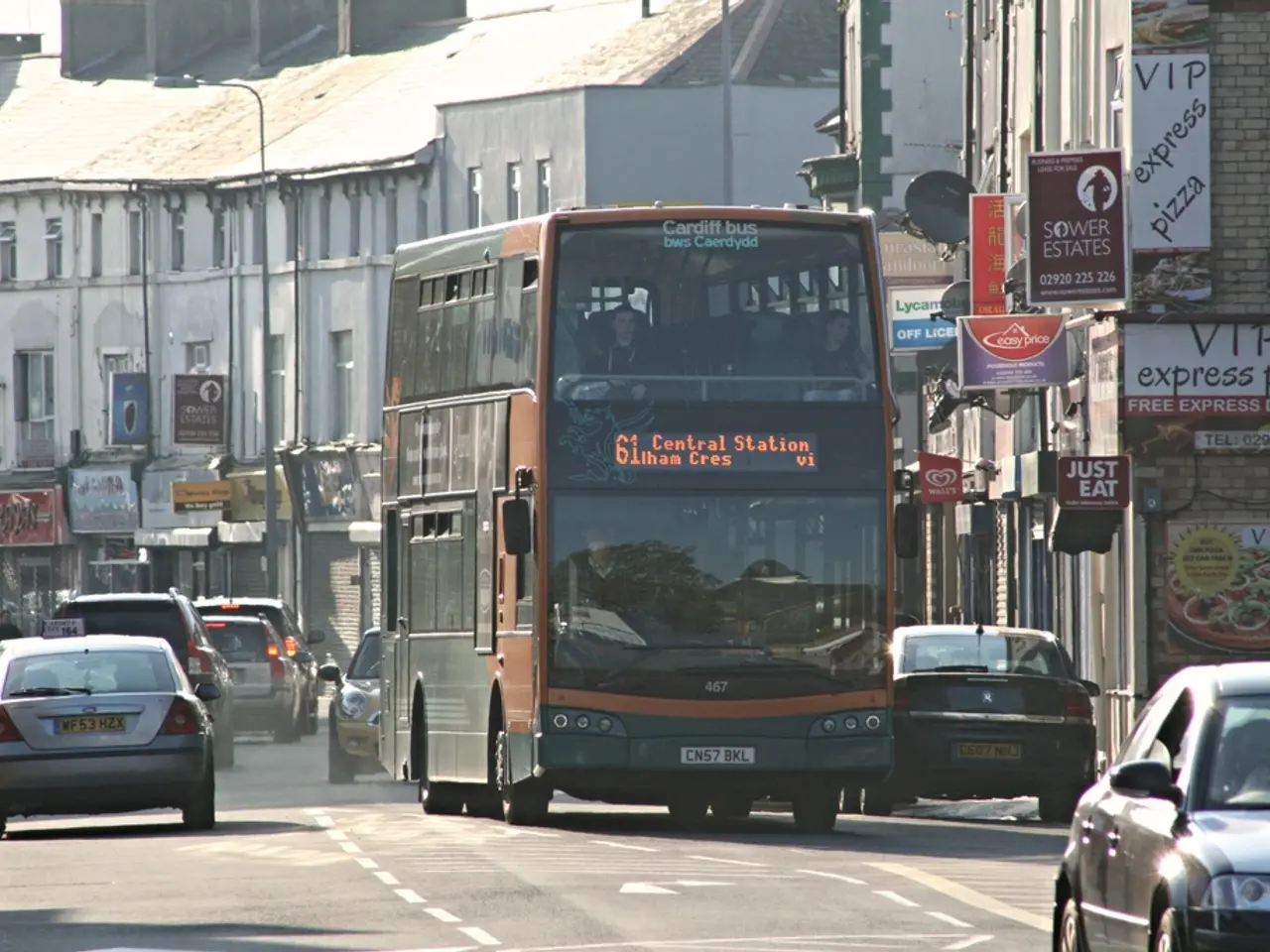Enhancing mechanisms for rent decrease would be beneficial - Rental costs climbing? Senator suggests additional measures to combat the issue
In the heart of Germany, Berlin continues to grapple with soaring rental prices, despite the federal government's extension of the rent brake policy until 2029. This policy, known as the Mietpreisbremse, aims to limit excessive rent increases in high-demand areas, including Berlin.
The rent brake, initially implemented in 2015, has been instrumental in moderating rent growth in the city. However, as of 2025, rental prices continue to rise moderately due to supply shortages and market dynamics. In the second quarter of 2025, rent growth was 0.7% quarter-on-quarter and 3.4% year-on-year, with average rents reaching approximately €16.00 per square metre, an 11% increase year-on-year [1][2].
Berlin's Senator for Urban Development, Christian Gaebler (SPD), is advocating for additional measures to curb rent increases beyond the rent brake. Gaebler, who is also a member of the SPD, the same party as the Berlin Senator for Urban Development, is seeking to change the non-applicability of the rent brake for new buildings, which currently does not apply [4].
The discussion between the Senator and the federal government is ongoing, focusing on the expansion of the rent brake to new buildings. Gaebler's statements were made in an interview with RBB information radio regarding the rent situation in Berlin [5].
Berlin's SPD leader Raed Saleh has also called on the federal government to consider a possibility for rents not to exceed a certain level [6]. Gaebler, however, does not support a complete rent stop, as it would prevent investments in state-owned and community-oriented housing companies [7].
It is important to note that the rent brake does not apply to new apartments completed after October 1, 2014, according to the current rules [8]. This exemption has been a point of contention, as it contributes to the ongoing housing shortages in the city.
In the past, Berlin had attempted to implement a rent cap law, but this was struck down by the Federal Constitutional Court. The details of this failed law are not clear, but it is likely related to the rent cap [9].
As the debate continues, it is clear that chronic supply bottlenecks and affordability issues remain critical challenges influencing Berlin’s rent policies and market behavior [2][3]. The extension of the rent brake is a step in the right direction, but more needs to be done to ensure that Berlin's residents can afford to live in the city they call home.
[1] Statista [2] Deutsche Welle [3] German Watchdog [4] RBB Information Radio [5] RBB Information Radio [6] Tagesspiegel [7] Tagesspiegel [8] Tagesspiegel [9] Tagesspiegel
- Berlin's Senator for Urban Development, Christian Gaebler (SPD), has proposed modifying the current policy-and-legislation to make the rent brake applicable to new buildings, aiming to address the rising rental prices and housing shortages in the city following the extension of the policy until 2029.
- The ongoing debate on Berlin's skyrocketing rental prices, politics, and general-news reveals that while the extension of the rent brake policy is a step towards moderating exorbitant rent increases, additional measures are needed to ensure the affordability of housing for its residents.







